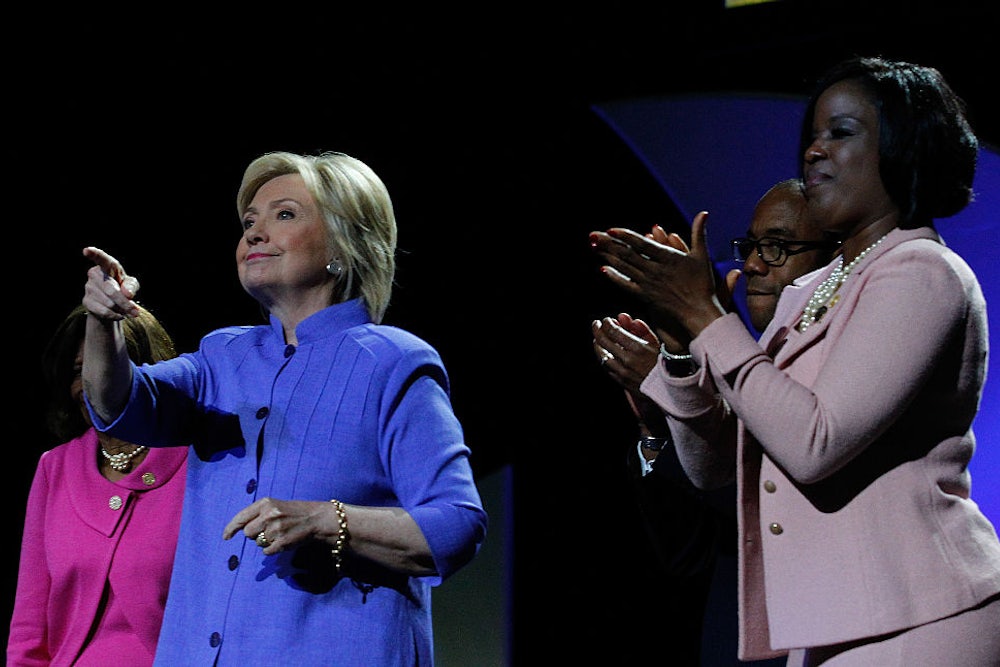Clinton, as she herself pointed out in a speech before the NAACP’s annual conference, has had plenty of time to hone her rhetoric on these issues, and on Monday afternoon, it showed. “This madness has to stop,” she said. “We have difficult, painful, essential work ahead of us, to repair the bonds between our police and our communities, and between one another.” Clinton discussed, at length and in precise detail, the form that work would take under her presidency. But lately you can’t help the sense that the reality is spiraling too fast for neat political messaging to reign in.
Before the NAACP, Clinton made the “police safety” case for police reform, as if the killing of eight of their own will convince America’s thus-far recalcitrant women and men in blue to back change. Her emphatic denunciation of the “murder” of police officers—a “terrible crime” against “all of us”—might strengthen her corresponding call for gun control, but it also renders her language on “fatal encounters” between police and black citizens feeble by comparison. The very framing of her vision—a day “when there is respect for the law, when everyone is respected by the law”—precludes recognition that law enforcement officials regularly commit criminal acts with impunity.
At one point, Clinton referenced “the other convention” taking place in Cleveland. She meant it derisively, but if the juxtaposition between her speech and the coming Trumpocalypse reveals anything, it’s that pandering to the “law and order” crowd is a lot easier than trying to make everyone happy.
